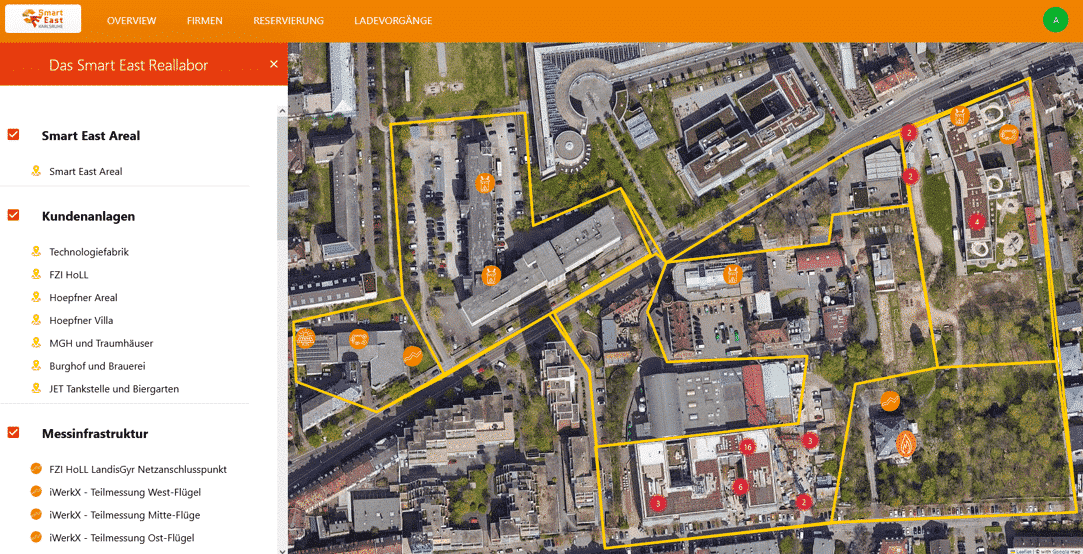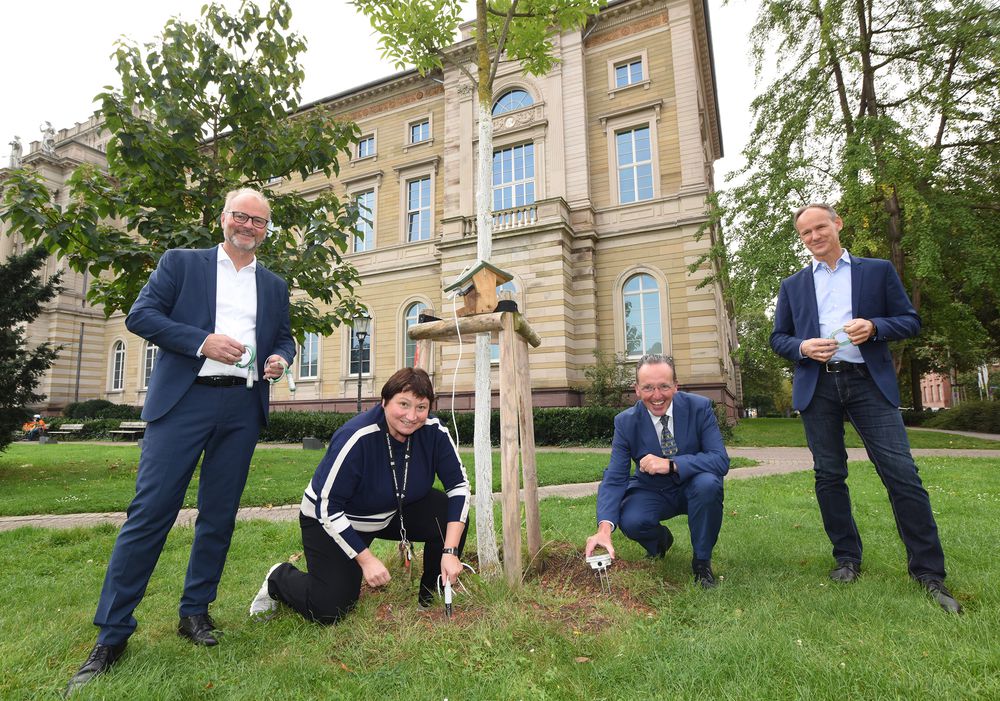Smart Energy & Environment

CityCLIM
Cloud-based weather data for detailed forecasts, action monitoring and public climate services
In densely populated areas in particular, high temperatures last longer and even at night there is often only a slight cooling effect. Against this backdrop and due to the increasing frequency of heatwaves, the EU is funding the CityCLIM project (“Next Generation City Climate Services Using Advanced Weather Models and Emerging Data Sources”) as part of the Horizon 2020 program. Alongside Luxembourg, Valencia and Thessaloniki, Karlsruhe is also a model city and is receiving personnel support for the project. The project partners are developing a cloud-based data platform over three years to enable high-resolution weather forecasts specifically for metropolitan regions. The calculations made with the improved model will then be made available to the general public in the form of various weather and climate services. Among other things, this should make it possible to investigate the effect of urban planning measures in response to climate change. In this context, for example, an analysis of the effects of green and water areas on the urban climate is being considered. After all, heat in cities also has a negative impact on health.

Smart East – digitalization for the energy transition
The Smart East real-world laboratory brings the energy transition to the city
A consortium of research, IT and energy companies is realizing a smart district in Karlsruhe East with the three-year Smart East lighthouse project. The project started in 2021 and is funded by the Ministry of the Environment, Climate Protection and the Energy Sector in Baden-Württemberg.
In the Smart East real-world laboratory, the existing mixed commercial area in Karlsruhe’s Oststadt district on Haid-Und-Neu-Straße is being transformed into a smart, energy-optimized and climate-friendly district. The fields of action of the Reallabor project are: Digitalization, climate protection, photovoltaics, tenant electricity, intelligent charging management, new business models and participation.
In the project, the existing buildings are digitized with smart meters and networked in a district energy management system. At the same time, electricity generation from photovoltaics is being expanded and supplemented with an intelligent charging infrastructure in order to link the electricity, heating, cooling and mobility sectors. With tenant electricity and smart charging, Stadtwerke is testing new business models for climate-friendly neighborhood energy supply via its subsidiary BES (Badische Energie-Servicegesellschaft).
The real-world laboratory project serves as a blueprint for other municipalities. The experiences are presented to the general public at regular user meetings. Project partners are: KIT Karlsruhe Institute of Technology, FZI – Research Center for Information Technology, Seven2one Informationssysteme GmbH, Stadtwerke Karlsruhe, Hoepfner Bräu

Smarter Friedrichsplatz
Intelligent environmental sensors ensure needs-based and resource-saving irrigation
The “Smarter Friedrichsplatz” pilot project makes a sustainable contribution to a climate-friendly Karlsruhe and attempts to curb the harmful effects of climate change through adaptation measures. The focus of the cross-departmental commitment is the future needs-based irrigation of trees and green spaces in the city.
Sensors and transmission technologies are used, for example, to measure how much water reaches the tree roots. The soil moisture at various depths and other climate values are measured regularly and transmitted wirelessly to the municipal utilities’ IoT system. The data evaluation can be used for demand-oriented irrigation.
Various municipal stakeholders are working closely together to make the pilot project a success. In addition to the Horticultural Office, the IT Office, the Environmental Office, Karlsruhe Public Utilities and the Open Knowledge Lab Karlsruhe are also involved. Data and results from the project are made available to all citizens in accordance with the open data approach.